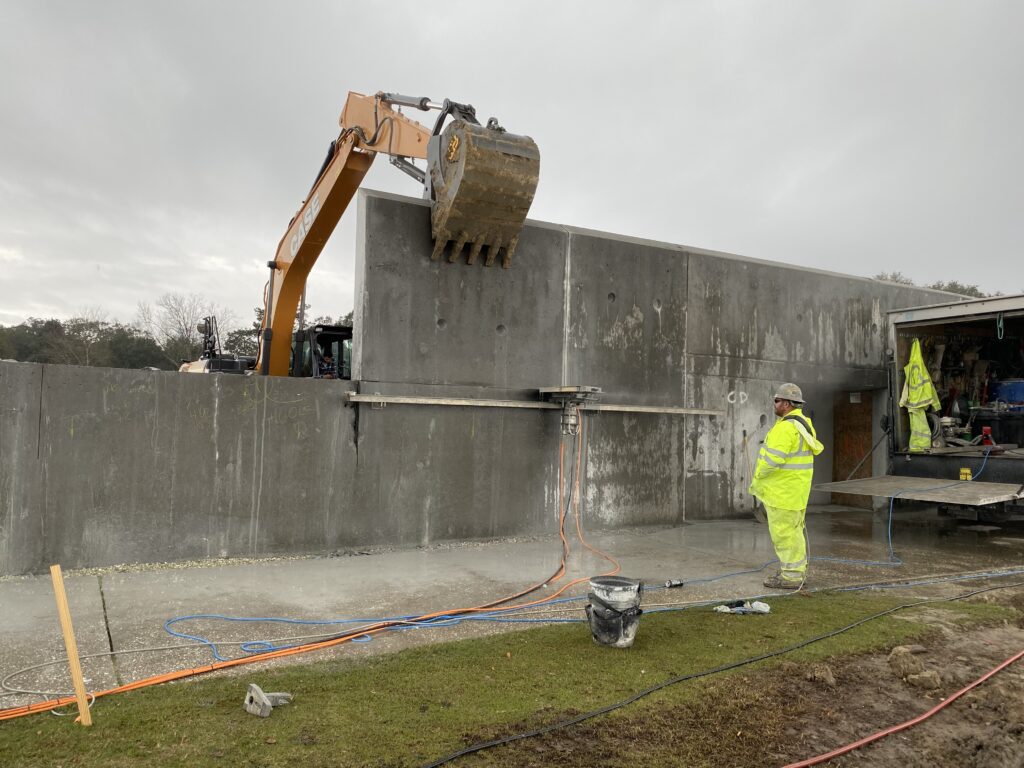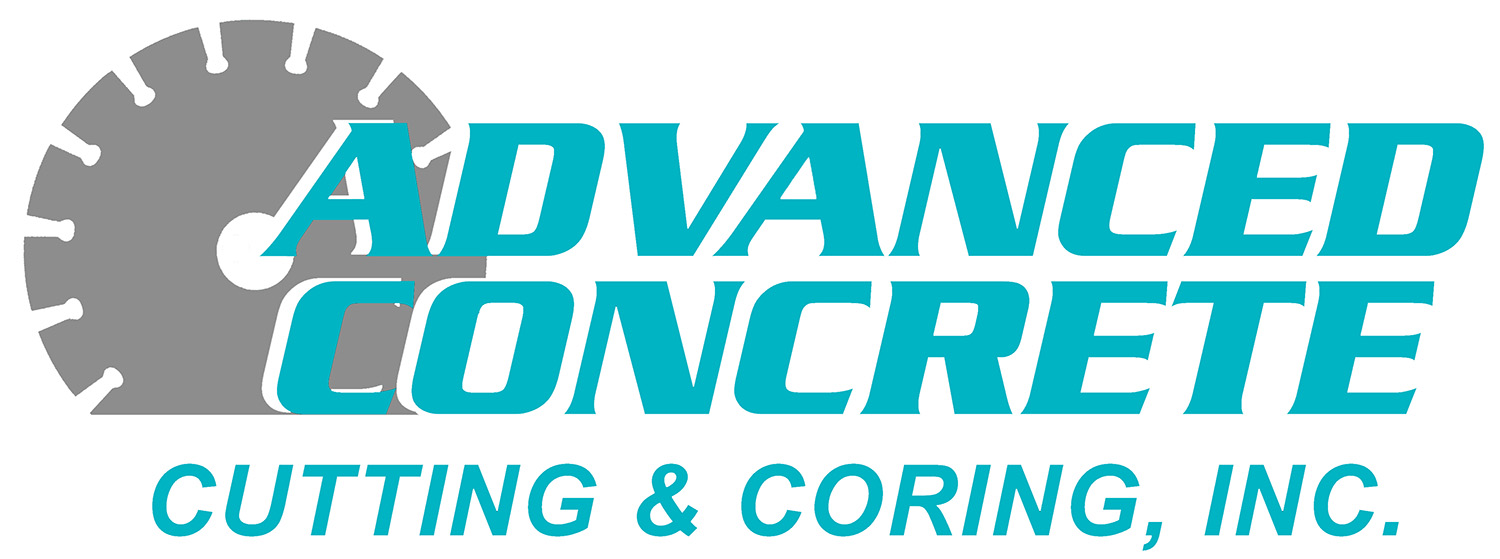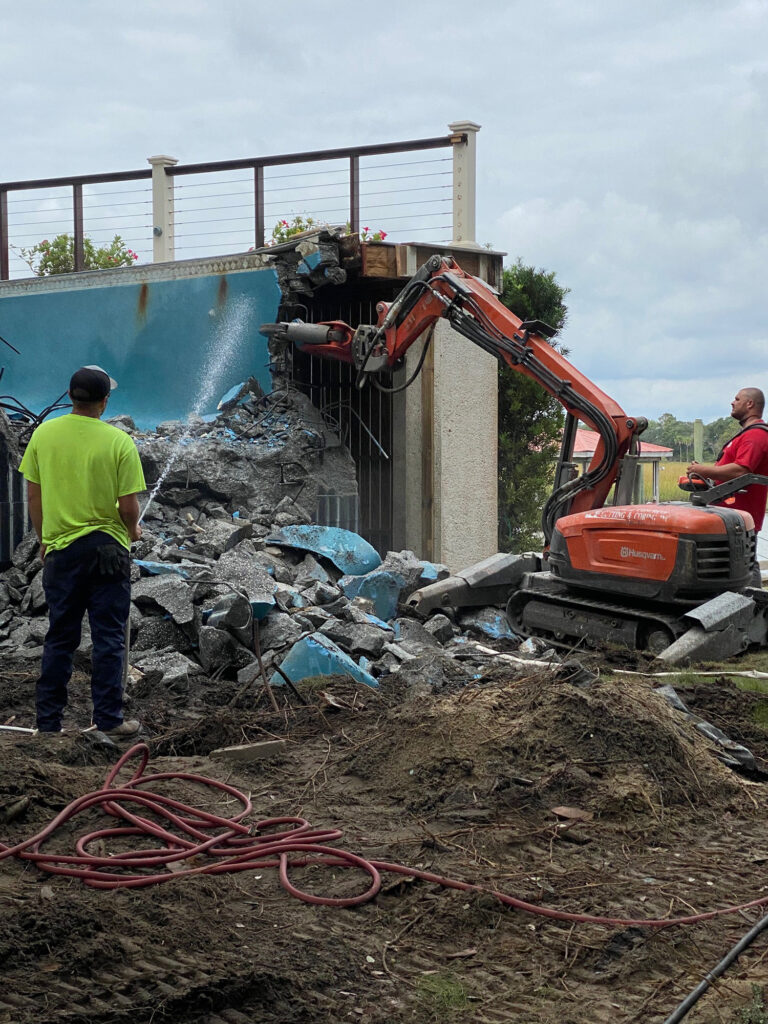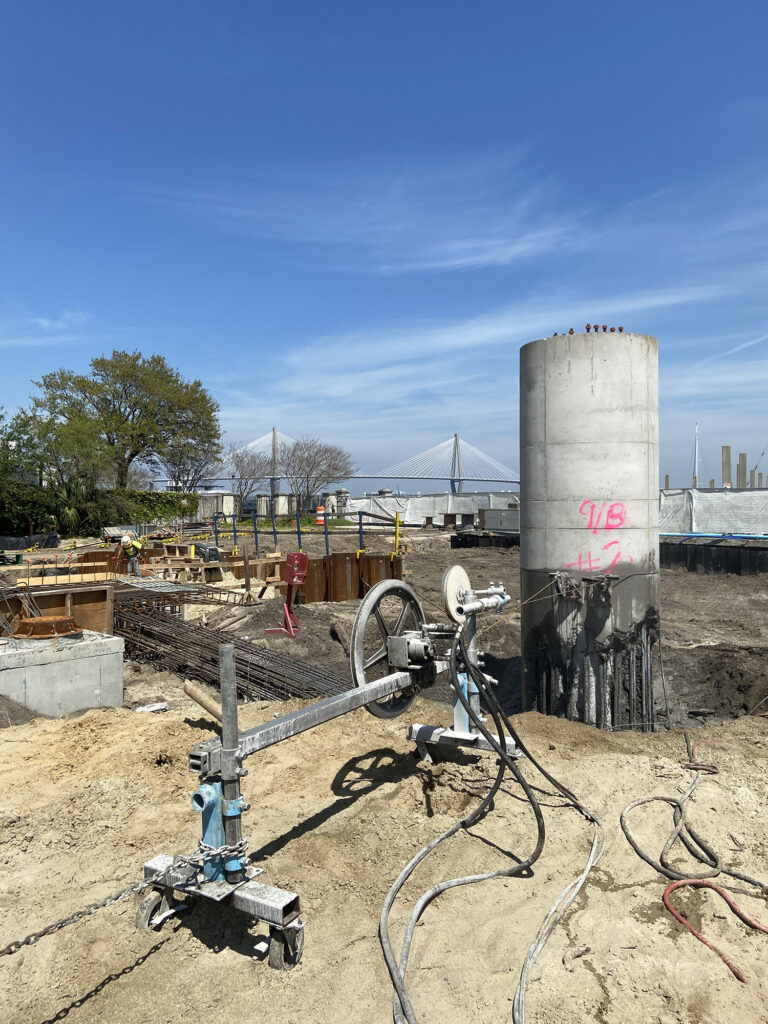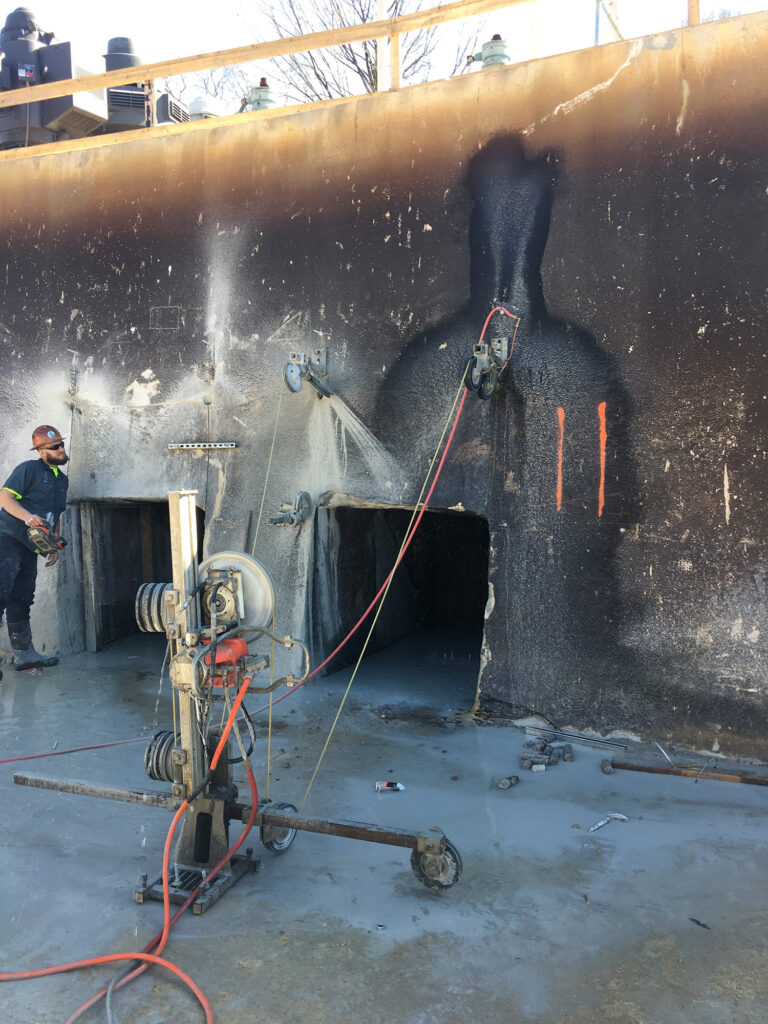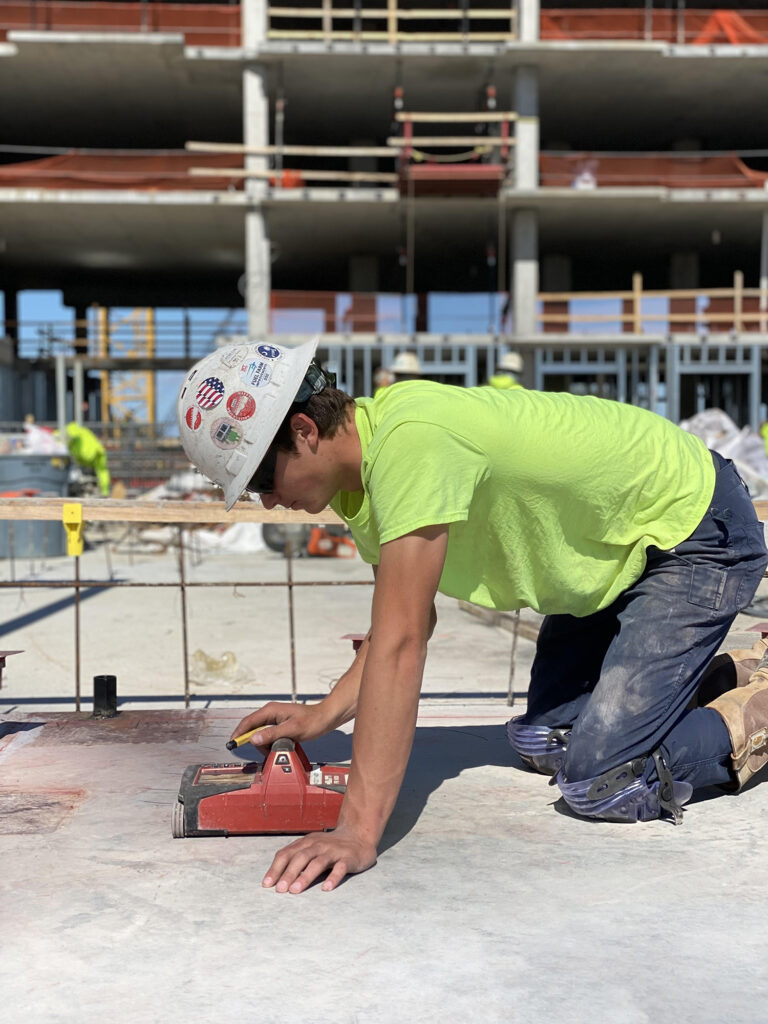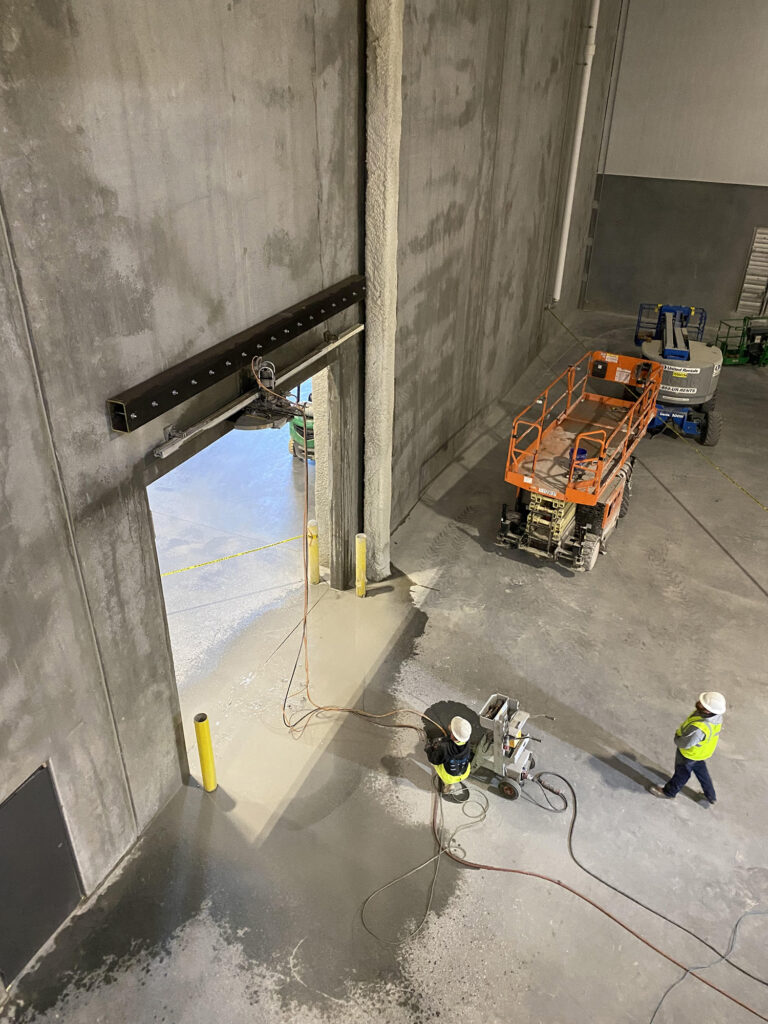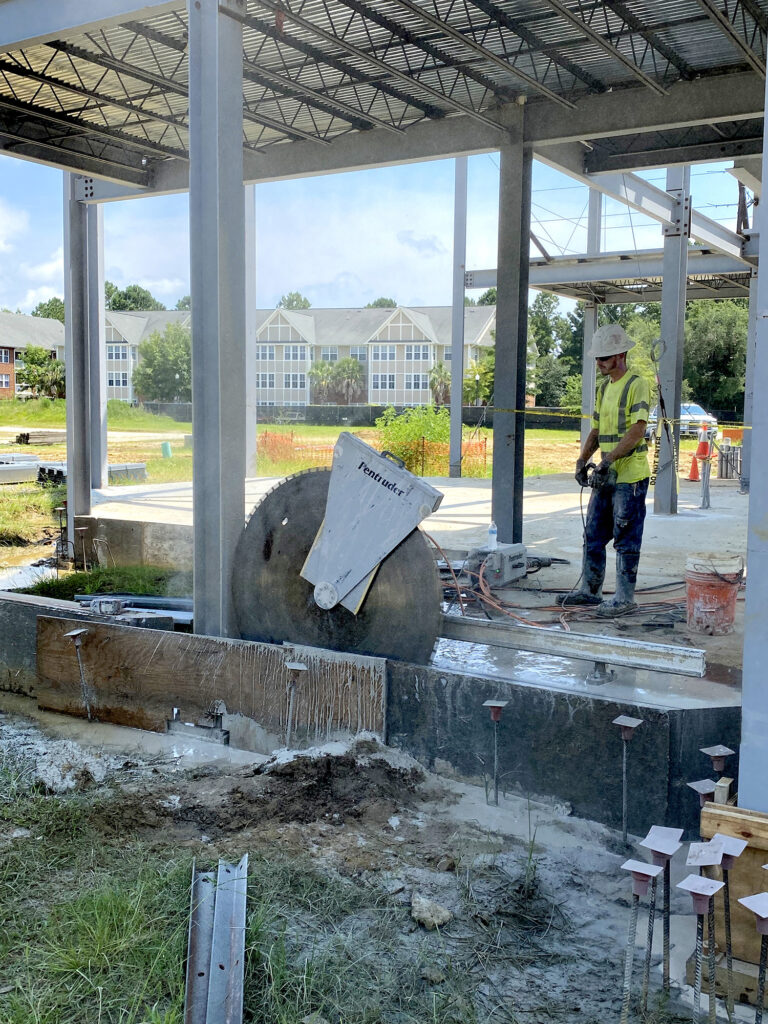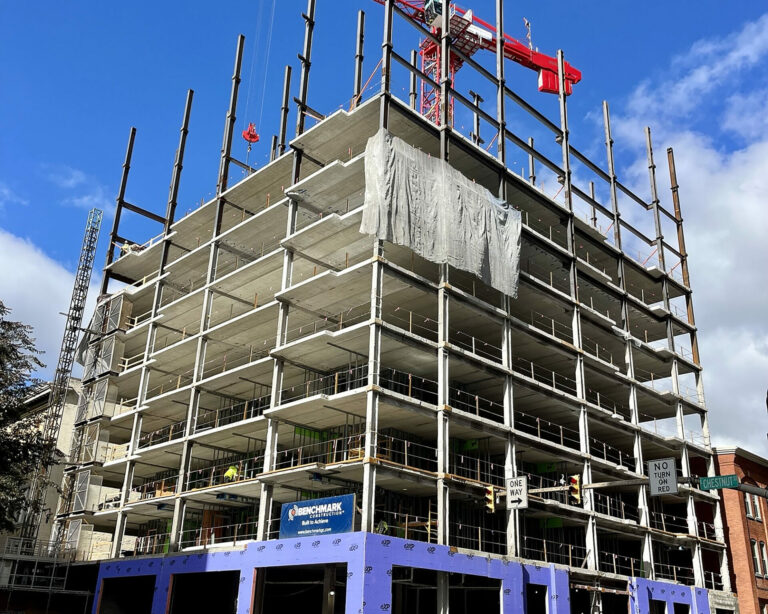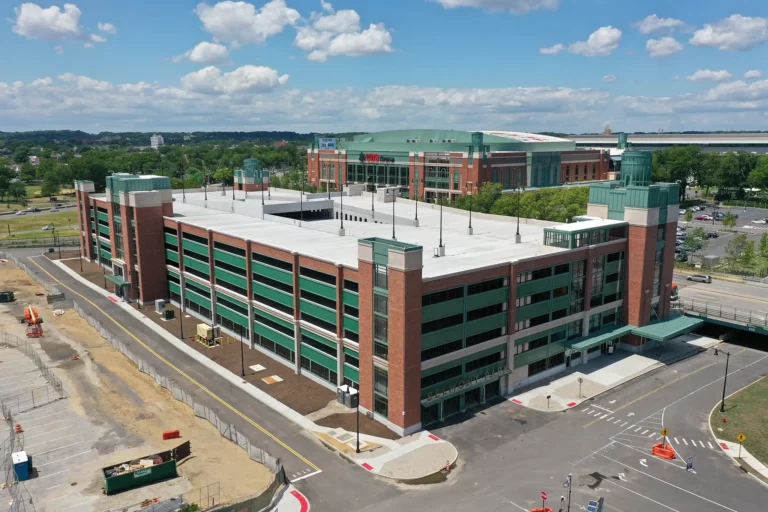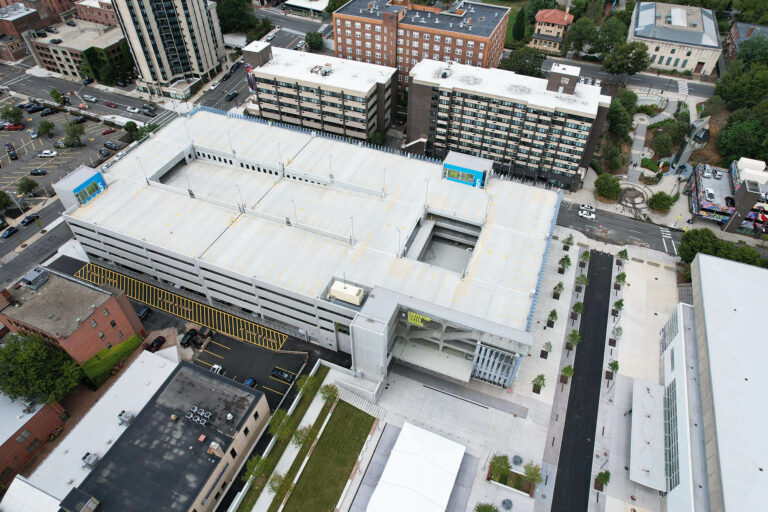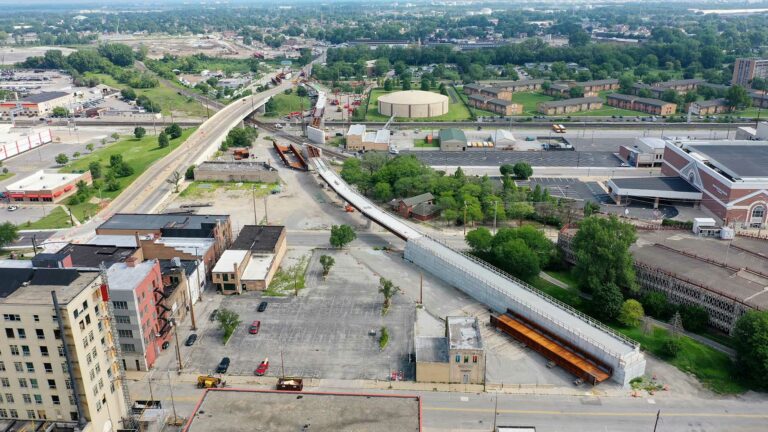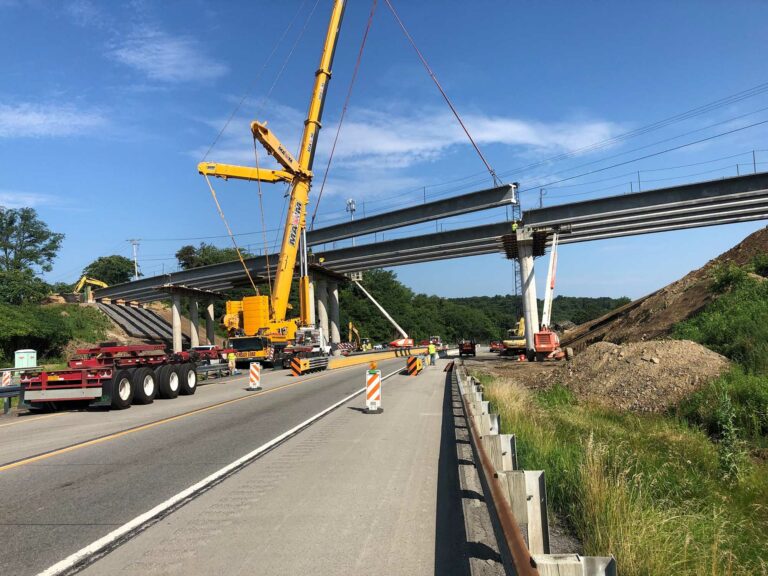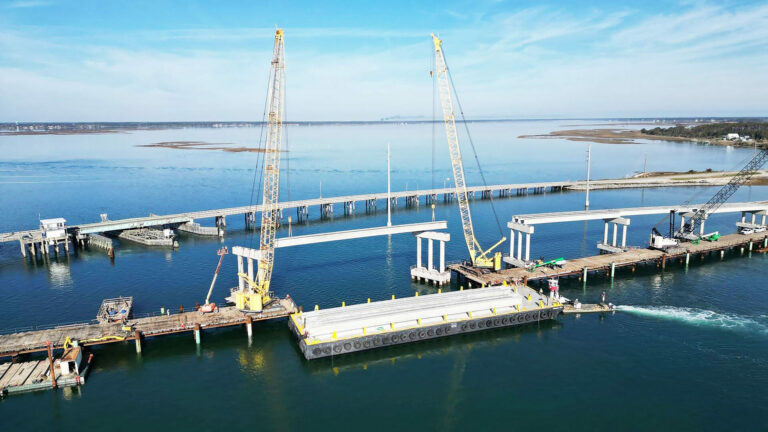QUESTION: What do you do with an unwanted swimming pool? Maybe it’s the size or the color or the shape that doesn’t suit, or maybe you can’t swim. Whatever the reason, you have a pool and it needs to go. Realistically, a six-foot-deep, concrete-lined hole in the ground won’t be easy to shift, so what are your options? The wonderful thing about America is there’s an answer to every problem and in this case, Greg Lynch, CEO of Advanced Concrete Cutting & Coring, is the man with the solution.
“We recently tackled a pool demo. That was a big job,” Greg tells me over Zoom, nonchalantly, as though digging out pools was like rooting up weeds. “Somebody had a swimming pool. It cost a lot of money to build so obviously choosing to demolish it was quite the big decision. They wanted a different pool, so we came in and tore the old one out.”
Greg makes it sound easy, but the work ACCC do is anything but. Advances in technology mean some tasks have become less hazardous. For instance, they use ground penetrating radar (GPR) to located rebar, plumbing and post tension cables in concrete slabs or walls but cutting concrete is a demanding job, both physically and mentally. It requires skilled, experienced handlers to operate heavy-duty, potentially dangerous machinery, often in difficult circumstances. In the case of the pool, the elevated foundation and a small workspace presented a challenge, but using a robotic DXR, the team were able to crawl inside the pool and work from the inside out. No job too big, no job too small, as it says on their website.
Greg established ACCC over twenty years ago when he was in his forties. His company now provides every type of concrete cutting service you could possibly need, including hydraulic wall sawing, wire-sawing, core drilling, removal and demolition. There is something reassuring about what they do. It demonstrates that nothing is impossible, that you can, in fact, salvage the situation when someone forgets to leave a space for a door in a four-foot-thick, fifty-foot-high concrete wall. ACCC are the ctrl-alt-delete button of the construction world.
From humble beginnings, the business has grown steadily year on year and now employs ninety-five staff across five different offices, opening its fifth in Augusta, Georgia during Covid restrictions. Its finance department is looking towards an annual turnover of approximately fifteen million dollars this year. This is a success story, by any standards. What marks Greg out from other men who decide to go it alone in the construction business?
“His company now provides every type of concrete cutting service you could possibly need.”
“I’m a military brat,” he says. “My father was in the Army. I was born in Barcelona, but Dad was from New York and my mother was from North Carolina. It was just me and my sister growing up. We lived in Bermuda at one stage and we were in Germany when I was younger. I guess we lived in about fifteen different places. You know, when your parents are in the military, you get shipped around a lot growing up.”
I wonder what impact that nomadic lifestyle had on Greg’s personal development. “Well, it teaches you how to make friends real quick,” he laughs, without missing a beat, revealing a healthy sense of humour that no doubt has contributed to his success. Greg is likeable, easy to chat to. Would his staff say he’s a good boss?
“I guess it depends on what day you ask them! My philosophy is this: you always treat people the way you want to be treated. When we buy new trucks, new equipment, I make sure my guys are properly safety trained. We have a full-time safety officer. We try and provide the safest environment to work in and you want everybody to be able to come home at the end of the day. Construction is sometimes a dangerous business. Always take care of the people that take care of the company.”
Greg’s journey into the world of construction wasn’t necessarily exceptional, but once he found his footing, he soared above his peers. At sixteen, he went from high-school straight onto a building site, beginning his working life as a labourer. “I got into residential building and then into commercial, and as the years progressed, I moved into different aspects of construction. I’ve worked through the tool belt, all the way up into superintendents positions. I’ve been a carpenter on industrial jobs where it’s been huge, $50 million dollar fibre line upgrades to paper mills until eventually, I started up this company. We had just two guys at first, and two trucks and here we are now, twenty-two years later, with five offices, ninety-five employees, and about seventy-two vehicles on the road. It just kept growing.”
I’m curious to know more about the process of cutting concrete and Greg is happy to oblige. “When you core real concrete, you’re using man-made diamond bits. And with wire sawing, you’re using a flexible steel cable that has little bearings on it, every so often. You run it through a machine that has pulleys, and that’s what keeps the wire spinning. And as you’re cutting, you’re pulling on that wire and that’s what allows you to cut it probably.” It sounds very impressive, but sadly, I couldn’t get past the bit about the diamonds.
When Greg set up his company, his goal was to provide the best concrete cutting services in the southeast of America and now he has checked that box. He built his team based on the traditional values of hard work, exceptional customer service and a highly skilled workforce. Today, ACCC enjoys a stellar reputation for quality. They are known for getting the job done and recognized as leaders within the industry in South Carolina, North Carolina and Georgia. Their clients include Volvo, BMW and Walmart, where they recently cut out sections of concrete slab floor with a flat-saw and core drilled holes for electricians and plumbers. “We work in a lot of the military bases too, you know, big renovation jobs.” Greg says, which makes sense, considering the volume of concrete used in army barracks. When I ask Greg if he has plans for further expansion, he answers cautiously, indicating that he’s keen to stay focused on smaller clients, the ones who enabled the business to get this far in the first place.
“I’m sixty-three now. I just had a birthday last Monday (making him a Capricorn). I’ve done a little bit of it all and been in commercial construction for a long time. I mean, you’re always wanting to grow a little bit but with growth comes more headaches. Right now. I’m pretty comfortable with nearly one hundred employees in the five locations. Every office I have is within a two-hour drive of my corporate office here in Charleston. And I like that. There are companies around that have offices all over the United States but I never had any plans to get to there.” Their motto reflects Greg’s ethos: they’re big enough to manage your largest projects yet local enough to understand how important it is to you. They say by using the best, modern, equipment they can ensure client costs are kept to a minimum and results to a maximum. How would Greg sum up his professional life so far?
“I’d consider myself very fortunate. I’ve got a bunch of good employees that make this business successful. It’s not just me, it’s everybody, especially my guys in the field. They are the ones out there cutting the concrete. You know, those guys the ones that you want out there, doing a good job, so that customers will call you back next time there’s another project.”









